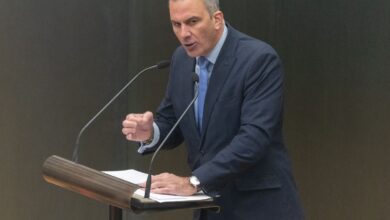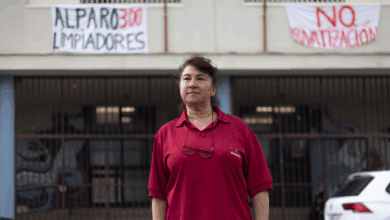
Last Sunday, the center of Seville became the focal point of a large-scale demonstration. Thousands of residents gathered outside the San Telmo palace to voice their dissatisfaction with the regional authorities’ handling of the crisis surrounding the breast cancer early detection program. The protest was organized by an association of women affected by the disease, with unions and representatives of left-wing political groups joining in.
The outrage was sparked by numerous delays and failures in the screening system, which prevented many women from receiving timely examinations. Protesters are convinced that the diagnostic failures are the result of mismanagement and attempts at partial privatization of healthcare. Banners called for the resignation of the regional leader and demanded improvements in medical services.
The situation escalated after the authorities acknowledged the problems and accepted the resignation of the health minister in early October. However, these measures failed to reassure the public. In response to criticism, officials promised to hire more medical staff and reform the system, but skepticism about these promises only grew. Many participants traveled from various cities across Andalusia to support the protest.
On the day of the protest, Seville’s transportation system was overwhelmed: metro, buses, and trams were packed, causing further inconvenience for residents. Among those gathered were not only activists and association members, but also ordinary citizens concerned about the state of regional healthcare. Some mentioned that they had previously supported the current government, but are now disappointed and ready to change their political preferences in the next elections.
Distrust in the system and demands for change
Many participants noted that the cancer screening crisis has undermined their trust in the healthcare system. Women spoke of cases where test results disappeared from electronic records, and invitations for other types of screening hadn’t arrived for months. This has sparked a wave of anxiety and dissatisfaction among the public, especially amid reports of possible malpractice in medical institutions.
After the demonstration, regional authorities announced their willingness to engage in dialogue with protesters and pledged to support women facing cancer. However, the opposition believes these measures are insufficient and continues to insist on the need for sweeping reforms in Andalusia’s healthcare system.
At the same time, representatives of the ruling party sought to downplay the scale of the protest, claiming that the number of participants was much lower than reported. They also accused the opposition of exploiting healthcare issues for political attacks. Nevertheless, the protest in Sevilla became one of the most high-profile events of the autumn, highlighting how strongly society reacts to problems in the healthcare sector.












